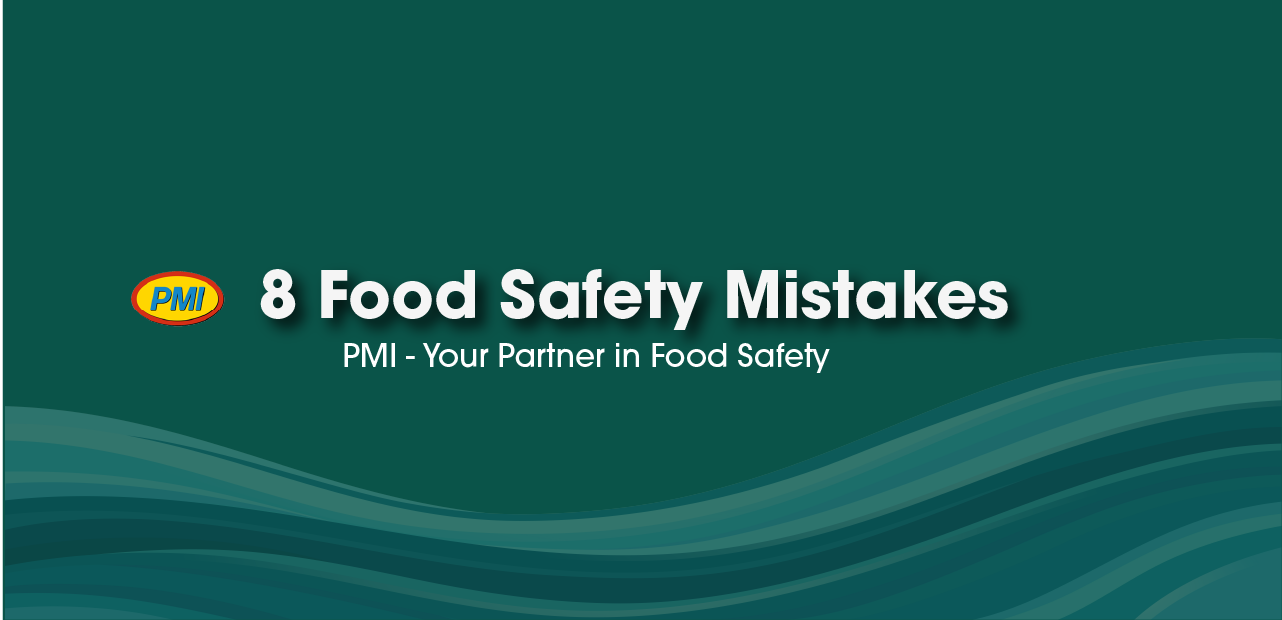Food Safety, Audit, Safety, Information
8 Food Safety Mistakes
Following this article, we felt it was a good idea to elaborate and help you keep your family safe and healthy. As the article suggests it is sometimes a simple mistake that can lead to a serious sickness.
Salmonella and botulism toxic can cause horrible food poisoning, paralysis, and even death with the smallest amount.
Here we have highlighted some mistakes with food that we believe you could avoid in the kitchen to protect your family.
· As a fellow South African weekend braai’s are part of our culture and daily lifestyle. Nothing better than a nice piece of steak marinated with ouma’s family marinade recipe. As bacteria can multiply very quickly at room temperature be sure to stick your marinating meat in a refrigerator.
· It is super tempting to grab a bite of the cookie dough before it goes into the oven or licks the spoon after making the batter for a cake. It is good to know that uncooked flour & eggs could contain e.coli, salmonella, and other harmful bacteria. So, it is best not to eat food items such as cookie dough, raw batter, homemade mayonnaise, or eggnog.
· Undercooked food items may have bacteria. If the food item is not cooked at the correct temperature, you can get sick. You can use a food thermometer to make sure the food items have reached the correct internal temperature. It is good practice to keep cooked food items you aren’t serving right away at a temperature of 60’C.
· The skin of Fruit and Vegetables harbors a diverse bacterial community on the surface. Those bacteria are distinctly different between fruit and vegetables. However, they are harmful to our digestive system and will make us sick. It is important for us to wash our fruit & veggies before we start to cut, peel, and prepare them for consumption. You don’t need to wash them with bleach or disinfectant. Some running water and a brush to scrub the firmer fruits like melons, avocados, and cucumbers will be sufficient.
· Personal hygiene is the number one cause of foodborne illness and so it is top of the list when it comes to making sure you have a food-safe environment. The bacteria on our hands can make food unsafe. It is important to wash hands straight away for 20 seconds with soap and running water. Then you should wash your hands before, during, and after preparing food, and before eating.
· Cross-contamination. How do you prevent cross-contamination in your kitchen since it is naked to the eye? Cross-contamination happens when we reuse unclean surfaces and uncleaned probe thermometers, which are perfect breeding grounds for bacteria. For example, unpacking your raw steak onto the counter, cooking the meat, and returning it to the same counter space that has not been sanitized. Be sure to not reuse plates, chopping boards, or countertops that had raw meat on, and have not been disinfected. It is good practice to use separate plates for raw meat and then the cooked meat. Same for your seafood, and chicken.
· Bacteria is naked to the eye and also is invisible to the nose. You cannot smell, see or taste food to identify if it is good for consumption. Tasting even if it is just a small amount still has bacteria that can make you sick. Rather reply on storage times, and when that time runs out, throw the food out.
· Leaving cooked food out at room temperature and not stored at the correct temperature heated or chilled, bacteria start to grow. You have about 2 hours after cooking food to get the prepared food into a chilled area or heated oven to prevent bacteria from growing and contaminating your food.
PMI can help you with food safety instrumentation. If you need some guidance or would like a quote please contact us on info@pminstrumentation.co.za or 011 728 6099.

